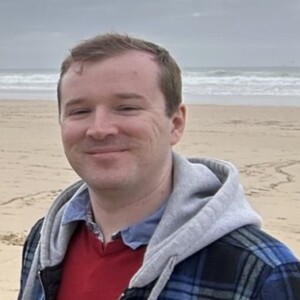
Daniel Loy
The Open University
Project
Microbial Survival in the Makgadikgadi Basin, Botswana
Supervisors
- Michael Macey, The Open University
- Karen Olsson-Francis, The Open University
- Marcus Badger, The Open University
- Fulvio Franchi, Botswana International University of Science and Technology (BIUST)
- Keyron Hickman-Lewis, The Natural History Museum, London
PhD Summary
This project will be investigating the microbial communities in the salt pans of the Makgadikgadi Basin in Botswana. From previous research we know these communities exist so I will be looking at the ecological strategies utilised by these communities; how these microorganisms physiologically adapt to the environmental conditions and interactions between them and their host sediments.
I will be using microbiological (both culture dependant and independent methods) and geological techniques to understand how these communities, and the individuals within, are adapted to their environment. Core samples will be gathered from the salt pans in Botswana and will be subjected to physio-chemical, morphological and compositional analysis before extracting DNA and RNA to characterise the taxonomic and genetic diversity.
Previous activity
I completed an MSc in Tropical Marine Biology at the University of Essex, where I first worked with extremophile microorganisms, I was interested in further research on this after my MSc but needed experience in microbiology first to get the PhD, so I worked for Public Health England (now UKHSE) in the clinical Microbiological laboratories at Addenbrookes hospital in Cambridge.
Following this I worked at the Animal and Plant Health Agency in roles in Pathology and Cell & Tissue Culture before moving to their Bacteriology department. In this job I curated a biological archive of veterinary pathogenic bacteria from across the UK, identified unknown and novel disease-causing pathogens using molecular methods and was involved in several research projects.
Why did you choose doctoral research?
I wanted to start a career in research on extremophile microorganisms in the field of astrobiology and my previous work in industry was aimed at helping me get the experience I would need to start PhD on the subject. This project was ideal as it investigates halophilic communities – the same type of extremophile I worked with during my MSc research project. I currently aim for a research/teaching career based on habitability and detection of life and biomarkers in extreme environments.
Why did you choose CENTA?
The ongoing training of students by CENTA that happens in addition to each partner university’s own training is very appealing and really drew me to this studentship. Getting to know the other members of the 2022 cohort and learning about their projects and what we could learn from each other is also really beneficial as there is quite often some overlap are advice about statistics/programs/etc. that is useful to be shared.
Future plans
As well as the range of training given by CENTA and the Open University I am excited about the interdisciplinary aspect of the Astrobiology OU group and the opportunities to learn from others in the group working in different fields to myself.
I currently aim for a research/teaching career based on habitability and detection of life and biomarkers in extreme environments, ideally getting to work on other extreme environments such as deep-sea vents, volcanic slopes and Antarctic deserts. I am excited to see where this project goes however, so am open to going into different areas in the field.
